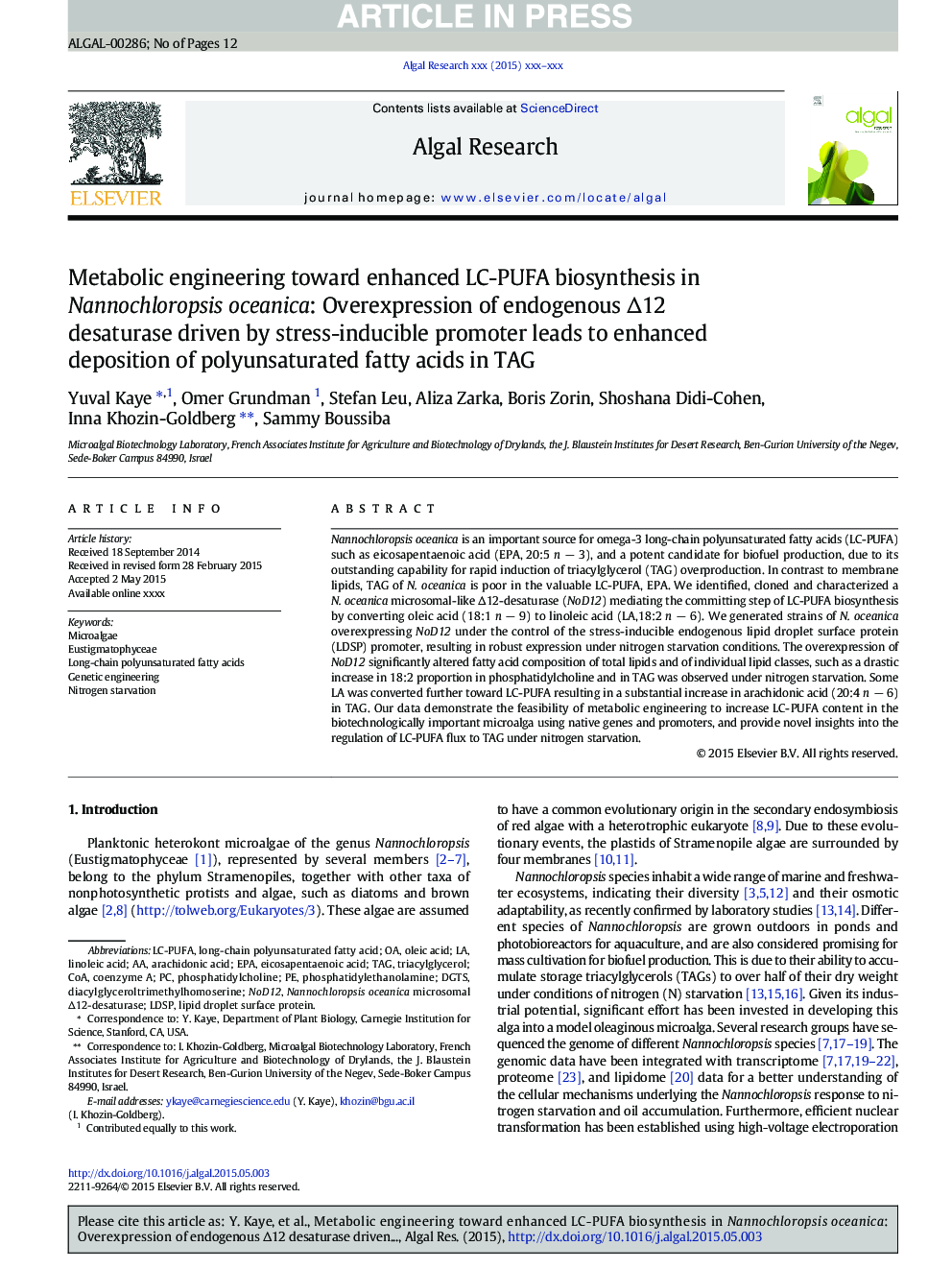| Article ID | Journal | Published Year | Pages | File Type |
|---|---|---|---|---|
| 8088135 | Algal Research | 2015 | 12 Pages |
Abstract
Nannochloropsis oceanica is an important source for omega-3 long-chain polyunsaturated fatty acids (LC-PUFA) such as eicosapentaenoic acid (EPA, 20:5 n â 3), and a potent candidate for biofuel production, due to its outstanding capability for rapid induction of triacylglycerol (TAG) overproduction. In contrast to membrane lipids, TAG of N. oceanica is poor in the valuable LC-PUFA, EPA. We identified, cloned and characterized a N. oceanica microsomal-like Î12-desaturase (NoD12) mediating the committing step of LC-PUFA biosynthesis by converting oleic acid (18:1 n â 9) to linoleic acid (LA,18:2 n â 6). We generated strains of N. oceanica overexpressing NoD12 under the control of the stress-inducible endogenous lipid droplet surface protein (LDSP) promoter, resulting in robust expression under nitrogen starvation conditions. The overexpression of NoD12 significantly altered fatty acid composition of total lipids and of individual lipid classes, such as a drastic increase in 18:2 proportion in phosphatidylcholine and in TAG was observed under nitrogen starvation. Some LA was converted further toward LC-PUFA resulting in a substantial increase in arachidonic acid (20:4 n â 6) in TAG. Our data demonstrate the feasibility of metabolic engineering to increase LC-PUFA content in the biotechnologically important microalga using native genes and promoters, and provide novel insights into the regulation of LC-PUFA flux to TAG under nitrogen starvation.
Keywords
DGTSEustigmatophyceaeCOALC-PUFAEPAArachidonic acidOleic acidEicosapentaenoic acidLinoleic acidlong-chain polyunsaturated fatty acidLong-chain polyunsaturated fatty acidstriacylglycerolTAG یا triacylglycerols MicroalgaephosphatidylcholinephosphatidylethanolamineGenetic engineeringcoenzyme ANitrogen starvation
Related Topics
Physical Sciences and Engineering
Energy
Renewable Energy, Sustainability and the Environment
Authors
Yuval Kaye, Omer Grundman, Stefan Leu, Aliza Zarka, Boris Zorin, Shoshana Didi-Cohen, Inna Khozin-Goldberg, Sammy Boussiba,
